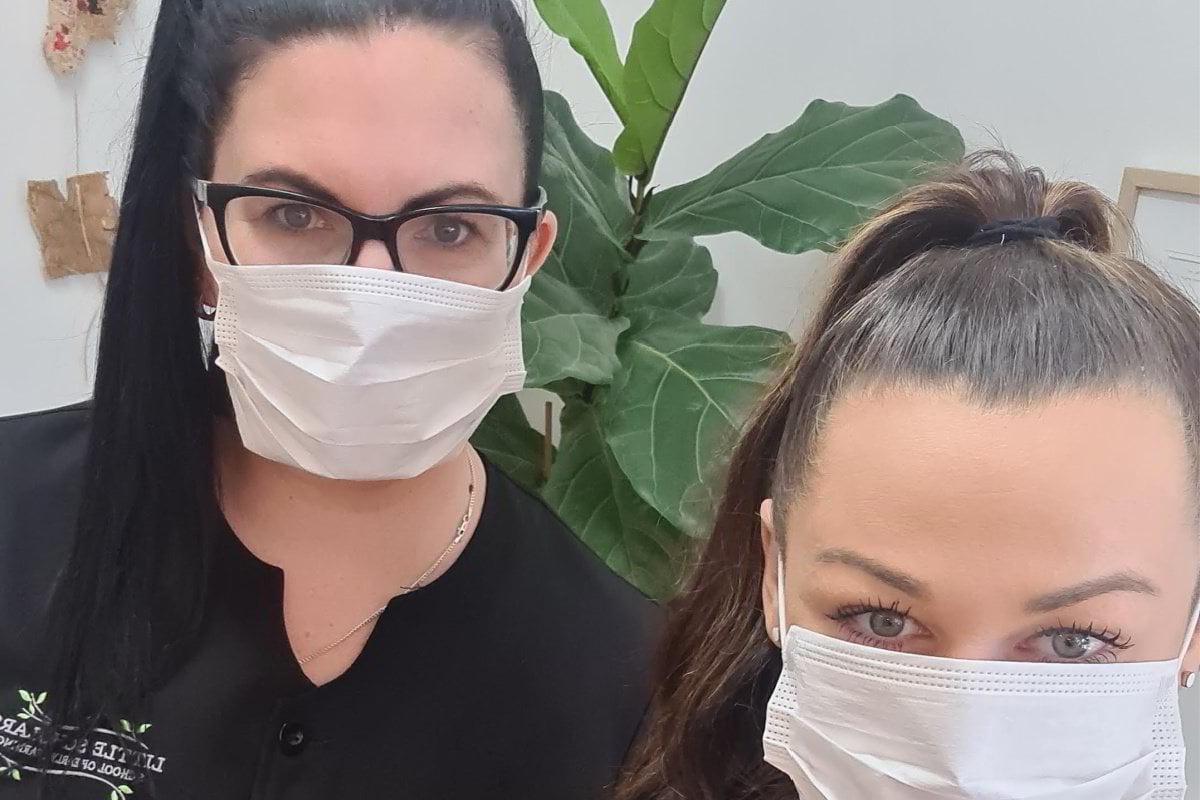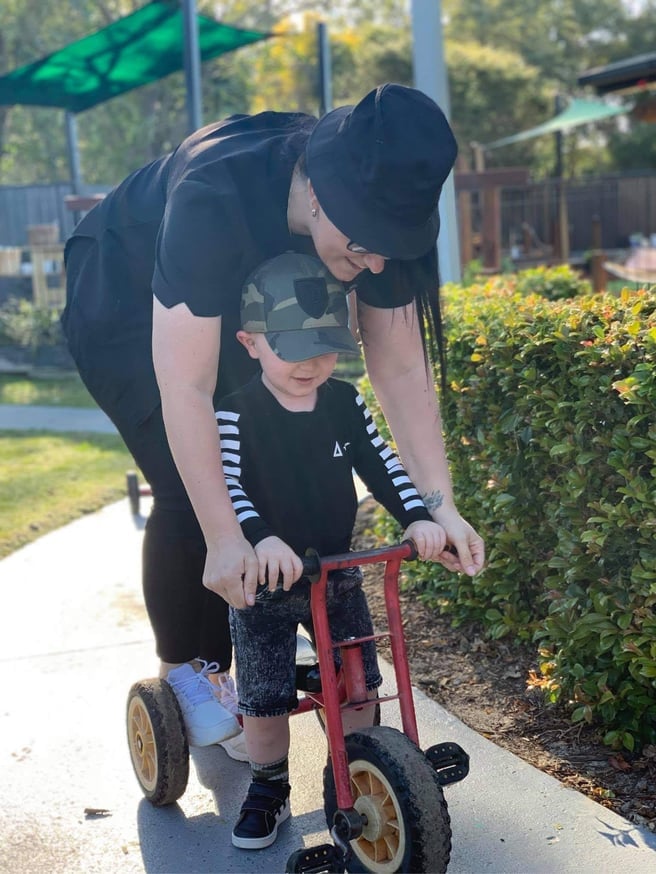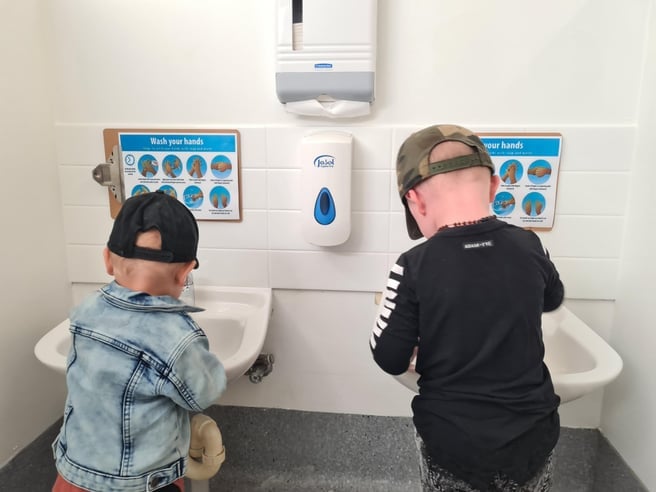
"Wash, wash, wash your hands, wash them nice and clean! Scrubb-e-ly, bubbl-ey, scrubb-e-ly, bubbl-ey, wash them nice and clean!"
Since March this year, that’s the song I’ve been starting my work day with. The tune is oh so cute and cheerful when you’ve got 20 three to five-year-olds singing along and practicing their very best hand washing technique.
As you can guess, this isn’t just another fun learning exercise; it’s a key step in keeping all the staff, kids, families and wider community safe from the dreaded C word.
Watch: With and without kids. Post continues below.
There’s no escaping the evidence of our changed world. Every day I’m trying to strike that perfect balance between ensuring the children are happily protected, not only from coronavirus, but from the high levels of anxiety and stress hovering in the air.
Instilling an understanding of germs and hygiene into children has always been an important part of being an early educator, so we have always had certain hygiene practices in place... it’s just that now we have extra layers of protection.
When it comes to the babies in the nursery, extra caution is simpler, with all who enter asked to remove their shoes. It’s the older children that we are carefully navigating these strange times with the most; the clever and inquisitive four-year-old that has picked up on her mother’s nervousness at the grocery store, or the cheeky and energetic three-year-old that suddenly can’t share water bottles with their best friend... my heart tugs every time I see that moment of awareness that something’s off.



